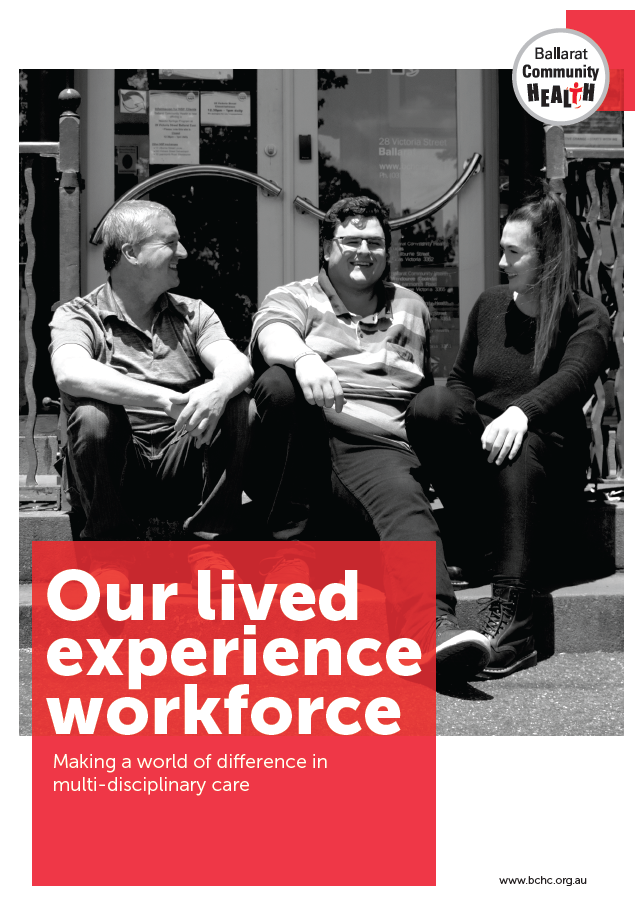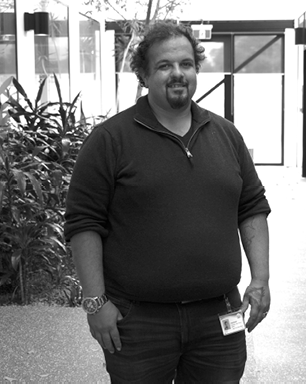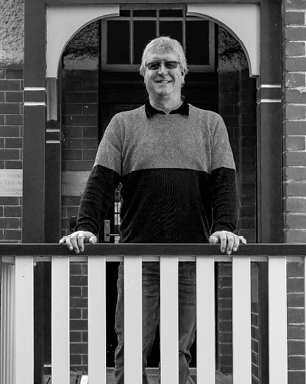Lived experience – the experiences of people on whom a social issue or combination of issues has had a direct impact.
BCH’s recovery-oriented approach to client services acknowledges that with the right supports, people can leave treatment and care systems to go on to live meaningful, self-determined lives. Lived experience workers play an important role in this pathway to recovery; they provide a non-clinical service but are embedded within multidisciplinary teams as specialists in:
- client and community engagement
- motivation and education
- community connection
- role modelling hope.
BCH has also invested heavily in co-design approaches to new and existing services. Co-design refers to a mindset and method for collaborating with stakeholders on the design and delivery of services. It is not just consulting with clients about a new service; it actively involves participation by clients in defining the problems to be addressed and the ways of addressing them.
Co-design recognises that a deep power imbalance exists between service providers and service users which is replicated in most conventional consultation methods. BCH’s experiences of applying co-design have taught us that workers with a lived experience of a health or social welfare issue are an essential resource in reorienting services. They demonstrate great credibility and skill in being able to engage with marginalised and underserved people, thereby providing a pathway to services.
BCH believes that genuine systemic reform can be achieved when users of those service systems have a voice in their re-design and delivery.
supports, people can leave treatment and care systems to go on to live meaningful, self-determined lives. Lived experience workers play an important role in this pathway to recovery.
At BCH, lived experience roles are an important resource which:
- promote better health, hope and recovery
- specialise in engagement, especially with underserved and marginalised groups
- model professionalism and credibility as an emerging discipline.






